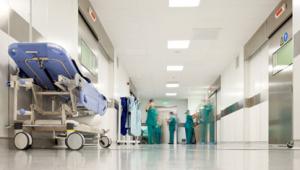30 March 2011
NHS trusts have failed to procure high-value equipment efficiently, and must improve before hundreds of millions of pounds worth of machines become due for replacement.
That is the message from a National Audit Office probe into how the NHS bought magnetic resonance imaging and computer tomography scanners, used in diagnosis, and linear accelerators, used in cancer treatment.
It will need some £790m over the next six years to replace around half of these machines as their useful life ends.
The NAO report, published today, says trusts are ‘not making best use of existing framework agreements which could secure lower prices’. They also lack ‘independent procurement advice’ on how their needs could be better met.
Trusts had used the framework contract from the central NHS Supply Chain for 75% of purchases in the past two years, but had bought individually instead of aggregating their demand to secure better prices.
No mechanism existed to allow trusts to find out if they had cost-effective maintenance arrangements in place, the report says.
Use of the machines varied by up to 60 hours a week between trusts, meaning ‘expensive equipment can lie idle for much of the week’, the NAO notes.
‘NHS trusts do not have the means to know if they are making best use, or getting best value out, of high-value equipment,’ the report says.
‘Equally, they do not have the means to determine if they are getting value for money from purchasing or maintenance.’
The auditors said the new NHS Commissioning Board should set standards for equipment use and that the Department of Health should encourage better procurement practices.
Margaret Hodge, chair of the Public Accounts Committee, commented: ‘Trusts are not working together to buy equipment and therefore don’t get the best prices. There is certainly potential here to get a better deal.’
Health minister Simon Burns said: ‘Modernising the NHS will cut waste, save money and improve the quality of care for patients.’ He added that the ‘clinical leadership’ of GP consortiums would allow closer working with hospital clinicians to design cost-effective services.




















